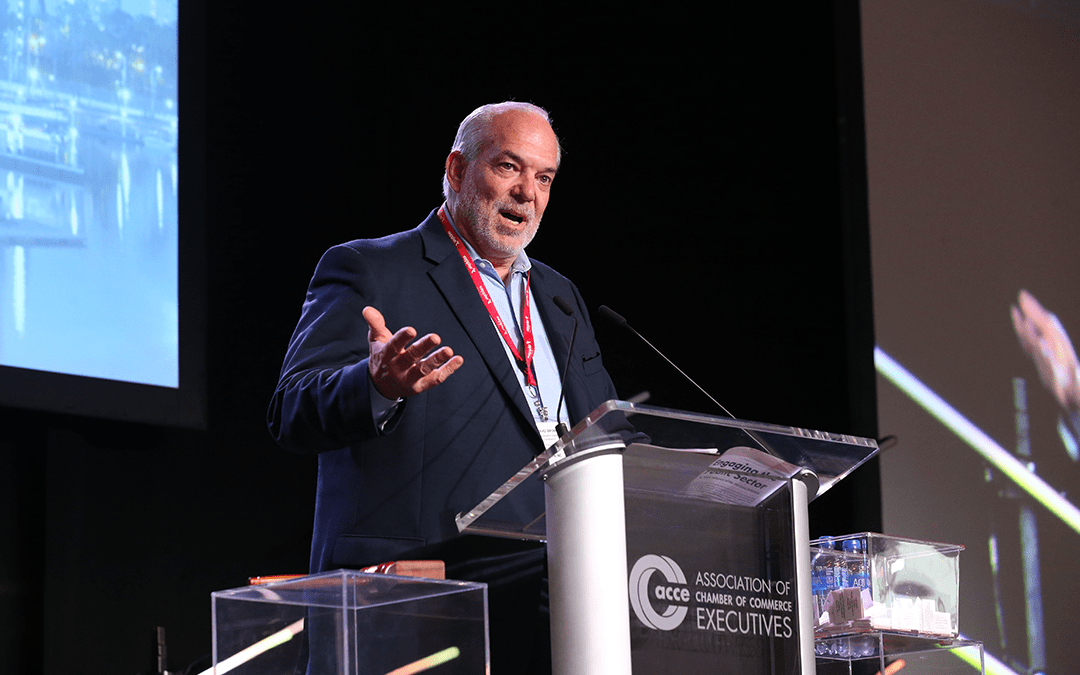I was recently given the honor of serving as Chairman of The Association of Chamber of Commerce Executives (ACCE) for the next year. I look forward to volunteering my time to this important organization, working with its staff and supporting other chamber executives as they work to lead economic growth and development in their communities. It’s an exciting, new opportunity – and a great chance to reflect on the transformative power of the Greater Omaha Chamber and the rest of our nation’s chambers of commerce.
I’ve been in the chamber or economic development business for my entire 37-year career; this is my 30th year as a chamber CEO. That means I’ve been in the organizational leadership business for most of my life. But I didn’t recognize the difference between leading an organization and leading change in a community until my time invested in the Greenville, SC, Chamber and now, for the past nearly 16 years, the Greater Omaha Chamber.
I believe that chambers of commerce are the logical place where community-leadership initiatives and community-building initiatives begin and endure. History has shown that Chambers outlast city, county, regional, state and federal leaders who come and go on the whim of voters. Chambers are imbued with leaders from the business community who are willing to use the power of influence and checkbooks to get things done. Chambers are the place where disparate groups are convened – where goals are set – where collaboration can be planned and executed.
Chambers have learned that we always accomplish more by working with other organizations. In many cases, we MUST work well with others. After all, we have no authority to do anything. We have to convince those with authority to exercise it on our behalf!
In the end, I have learned that chambers are the one constant in the community-building space. I believe that chamber leaders, like myself, need to be focused on the future not the past. The old model of strategic planning where we look back five years, make some changes, rebrand, increase the goals and budgets and then do it all over again in a few years is really not much different from an assessment with tweaks along the way. Instead, chambers should be striving to be change agents in their communities. Our strategies should be directed towards intentionally making our communities better places to live, work and play.
ACCE, through its Horizons Initiatives, has given us nine influences that will impact all of our communities and organizations:
- The nature of belonging and gathering
- Communications and technology
- Scarcity and abundance
- Global impacts
- Population shifts
- Political and social fragmentation
- Resource alignment
- Catalytic leadership
- Engaging the public sector
When given the choice, I focus on Catalytic Leadership. I believe chamber executives should look into the future and get comfortable with causing change that will accomplish a long-term vision of the future for your community. (I much prefer to be the instigator of change than the recipient of change being forced upon me!) To do that, we have to look over the next hill and see what disruptions we need to cause to accomplish the future we want. And just as important, we need to identify those disruptions we need to avoid to keep us on track towards our preferred future.
In the end, that really is a challenge to all of us: Be a catalyst for change in your community. Look to the future knowing that the Chamber will be there to support your effort as you cause intentional change.

